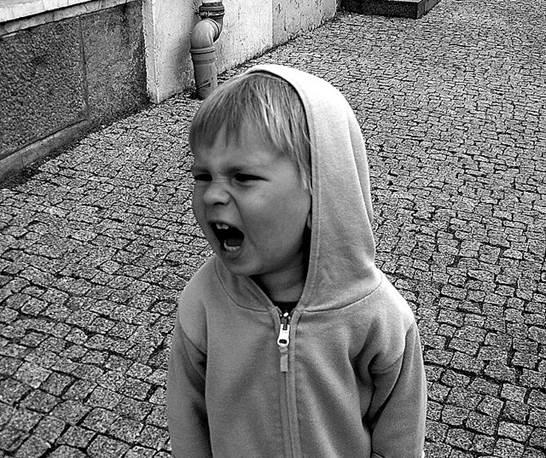Unions: the Uber-brat

Unions’ Only-Child Mentality Threatens ‘Sharing Economy’ and Franchise System
Unions vocally opposed the franchise system that has created millions of jobs, supported economic growth in communities, and helped a lot of people get their first jobs in high school. McDonald’s knows that Big Labor isn’t loving it, and other iconic American companies such as IHOP, Burger King, Jiffy Lube, Wendy’s, Howard Johnson, and Dunkin Donuts know it as well. But for the past few years union leaders have moved beyond just whining about it.
Now, labor unions have attempted to sue franchises claiming the major franchises are “joint-employers” as an avenue to try and unionize all of an organization at once. This would completely change the franchise system by making a franchiser responsible for all of the workers under the employ of the local franchise owner. If unions win the ongoing legal battles, this will cause labor costs to skyrocket and those costs will be passed along to the consumer. The deals, like the beloved “Dollar Menu,” may cease to exist as we know them.
Recently Big Labor has expanded their tantrum to include the “sharing economy.”
The “sharing economy” according to the pro-business and pro-sharing economy group, the People Who Share:
…a socio-economic ecosystem built around the sharing of human and physical resources. It includes the shared creation, production, distribution, trade and consumption of goods and services by different people and organizations.
A few well-known companies who operate on the basis of a “sharing economy” are Uber, Zipcar, Airbnb, Lyft, DogVacay, and Spinlister.
Unions don’t like the “sharing economy” because it’s harder to organize. Workers like the sharing economy because in it they often have all the control over their schedule, like drivers for Uber.
Uber is a car-sharing service that connects drivers with people who want to go somewhere via an app. The consumer plugs in where they want to be picked up, and where they want to go. The driver has been screened and will be driving a clean car less than ten years old. No cash will change hands as the credit card on the consumers account will be charged. This is a benefit to both the driver and the consumer.
The driver is a contract employee who chooses when, where, and for how long they will work. Most drivers utilize Uber as fractional employment, meaning that they use Uber as a means of additional income. A Wall Street Journal article reports that Uber says 51 percent of its drivers are on the road for less than 15 hours per week. The flexibility to pick and choose when to drive for Uber is huge for those that already have a primary employment and work around that schedule.
Uber has been highly successful with this business model, and reportedly is valued at $41-billion (more than General Motors or Ford). This makes Uber the highest-valued startup in America.
Unions have led legal challenges that the drivers are contractors and not regular employees. A handful of states have decided that Uber drivers are contractors, but the California Labor Commissioner’s office has recently changed their mind from a decision two years ago. They now say that an Uber driver is an employee.
Uber responded immediately to the ruling by filing an appeal to the Superior Court of California and releasing a statement that said:
The California Labor Commission’s ruling is non-binding and applies to a single driver. Indeed it is contrary to a previous ruling by the same commission, which concluded in 2012 that the driver ‘performed services as an independent contractor, and not as a bona fide employee.’ Six other states have also come to the same conclusion. It’s important to remember that the number one reason drivers choose to use Uber is because they have complete flexibility and control. The majority of them can and do choose to earn their living from multiple sources, including other ride sharing companies. We have appealed this ruling.
If it is found that Uber drivers are employees instead of contractors it will spell trouble for the company, drivers and consumers. The business model will be destroyed due to increased labor costs, Uber may choose to get rid of drivers to help balance the budget, and consumers will have to pay a higher price if they choose to ride. But, one of the main reasons people choose Uber is that it is usually cheaper than a taxi, though if that ruling forces that to no longer be true the company will be in serious straights.
The story of the union attacks on the “sharing economy” is similar to their assault on the franchise system. The story ends the same way with less opportunity for workers and higher costs for consumers. If unions can’t organize it, they are going to attack the business model until it dies.
It seems unions think that unemployment is preferable to a successful, non-unionized company.





